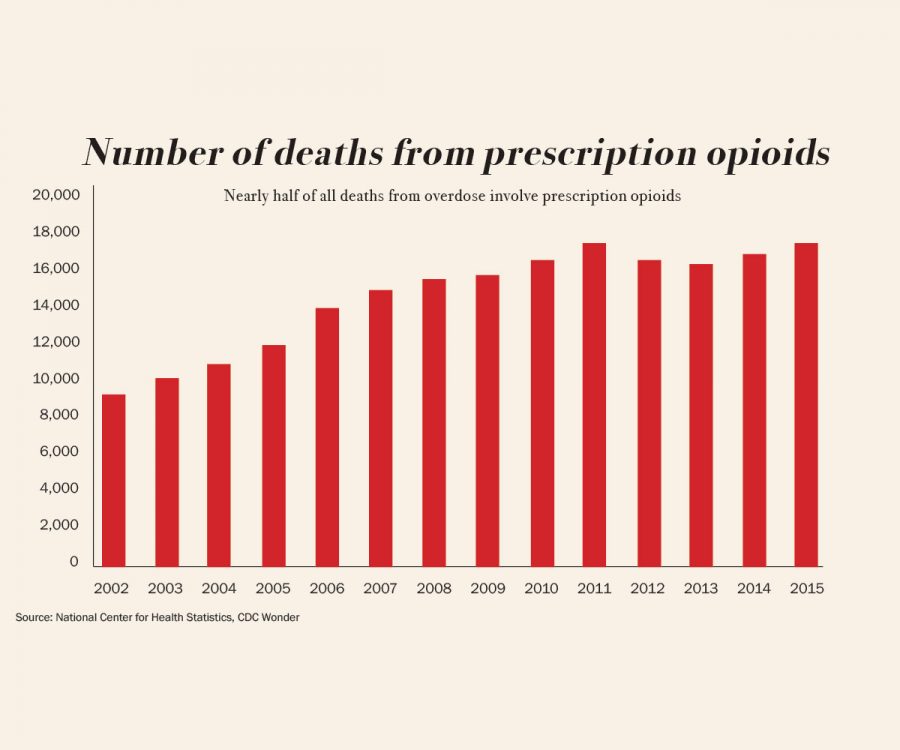In a critical move for the battle against prescription opioid abuse, Texas awarded the Center for Health Communication a $642,000 contract earlier this month to promote Texas’ Prescription Monitoring Program among drug prescribers.
Only about one-third of drug prescribers in the state use the Texas PMP, according Michael Mackert, the principal investigator on the project. Over the course of two years, UT faculty members from the College of Pharmacy, School of Social Work, School of Nursing, College of Communication and the Dell Medical School will collaborate to develop the best method for encouraging prescribers to use Texas’ monitoring program.
By using the system, prescribers can look into a patient’s drug prescription history and see what drugs have been dispensed to them in the past. This is integral for detecting if the patient has been “doctor shopping,” or looking around for unscrupulous or unsuspecting health care providers who will write them a prescription for opioids they don’t actually need, said Mackert, director of the Center for Health Communication.
“This PMP system is a public health tool to help prescribers do better by their patients,” Mackert said. “Opioids by themselves are not bad. Opioids are good and can help treat real problems, so (the PMP) is about helping figure out how to get the right med to the right patient.”
The 85th Texas Legislature passed a new requirement for pharmacies to report all controlled substances records to the Texas PMP no later than one business day following the dispensing of the medication. This shrank the previous reporting period of seven days.
Operation Naloxone — a UT initiative that promotes the use of life-saving opioid overdose drug naloxone — director Lucas Hill is also involved with the campaign to increase usage of the Texas PMP. Hill said national prescription opioid overdose deaths soared from the 1990s until about 2010, when several drug abuse prevention developments decreased prescription opioid abuse but inadvertently increased heroin use.
“Ultimately … we have (a) much worse crisis today,” Hill said. “The medical establishment definitely drove increased demand for heroin and fentanyl by getting people hooked on prescription opioids.”
From 2002 to 2011, the number of prescription opioid overdose deaths per year nearly doubled from approximately 9,500 to more than 17,000, according to the National Center for Health Statistics. Hill said the effects of prescription monitoring programs and crush-resistant OxyContin, which cannot be injected, can be seen as the number of deaths leveled off.
Jessica Wagner, assistant director at the Center for Health Communication, said she had heard lack of use may stem from the fact that most doctors have their own electronic medical record systems and that the Texas PMP is completely separate, making it more difficult to quickly access a patient’s history.
“Doctors and prescribers are often very short on time,” Wagner said. “They don’t want patient care to suffer at the expense of using one of these systems.”
One of the main goals of the Texas PMP is to help prescribers make better decisions for their patients, Wagner said, ensuring they are not unwittingly enabling substance abusers.
“Opioid abuse prevention is something that’s on the nation’s mind right now,” Wagner said. “It’s exciting for us to get to contribute to that.”




















